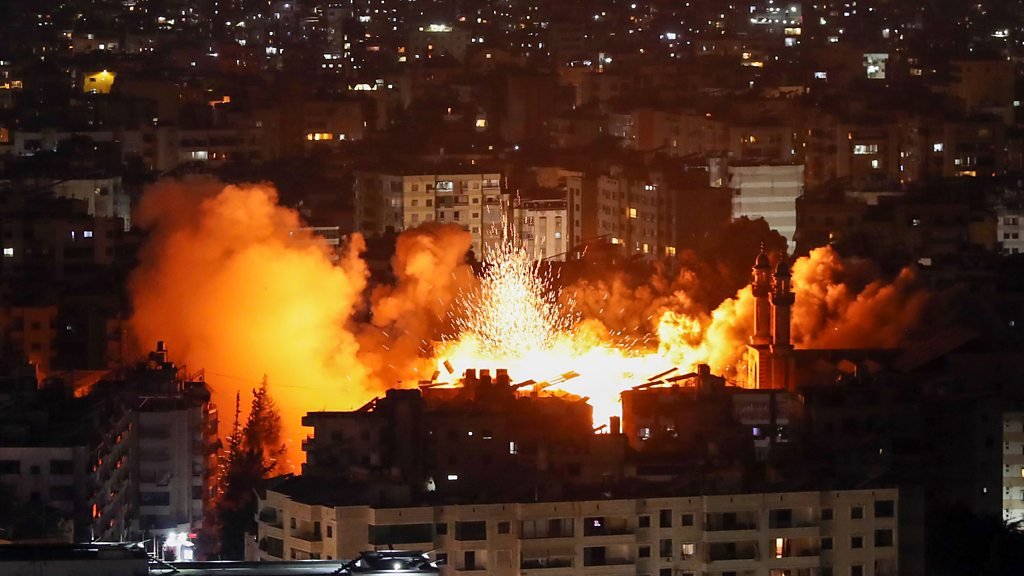Beirut (TDI): Israeli forces launched a series of airstrikes on Beirut’s southern suburbs and the southern village of Ain Qana on the eve of Eid al-Adha.
The attach marked the fourth direct assault on the Lebanese capital since a fragile ceasefire with Hezbollah took effect in November 2024.
The strikes, which Israel claims targeted Hezbollah drone production facilities, have left Lebanese civilians in shock and further destabilized an already tense region.
These attacks follow repeated Israeli violations of the ceasefire agreement, which the Lebanese government, Arab states, and international rights organizations have widely condemned.
Read More: Israel Launches Airstrikes on Yemeni Ports
President Joseph Aoun described the latest aggression as a “flagrant violation” of international accords and appealed to both the United States and France for intervention.
Despite the ceasefire, Israel illegitimately maintains a presence in at least five locations in southern Lebanon. Analysts suggest that this continued occupation allows Israel to project military power and gather intelligence near Hezbollah strongholds.
However, this also perpetuates a cycle of violence and fear for residents of southern Lebanon, who live under the constant threat of sudden evacuation or attack.
The Israeli military claims its targets are “legitimate” and linked to Hezbollah’s military infrastructure, including drone development. But Hezbollah denies operating such facilities in the areas struck, calling Israel’s justification a smokescreen for broader aggression.
Read More: Lebanon, Syria Sign Deal After Border Security Talks
From the ground, voices from southern Lebanon express outrage, fear, and defiance. Al Jazeera’s Zeina Khodr reported scenes of chaos and panic as residents fled their homes.
One resident told reporters, “We were preparing for Eid, and instead we were packing to survive.”
Such sentiment underscores the psychological toll of persistent airstrikes on a civilian population already weary from war and economic hardship.
Political analyst Rami Khouri believes Israel’s strategy is familiar but flawed. “Israel has always used force to achieve political aims, but history shows it only breeds more resistance,” he said.
While Hezbollah did suffer losses in previous confrontations, Khouri insists they are regrouping and preparing for future escalations.
Read More: Humanity’s Trial – Gaza: Blockade, Bombs and Betrayal of International Law
This conflict is about more than just military skirmishes — it’s about shaping Lebanon’s political and strategic future. Hezbollah’s presence in Lebanon’s south is both a symbol of resistance to Israeli influence and a major point of internal and international contention.
As the group adapts to changing conditions, so too must Lebanon navigate its fragile sovereignty and balance between war and peace.
Amid the violence, acts of resilience and hope continue. Despite destruction, Lebanese civilians remain steadfast, clinging to the hope of peace. “We are tired, but we are still here,” one local resident said.
Areeba Kanwal is a contributor at The Diplomatic Insight and has passion for International Relations and diplomacy.



